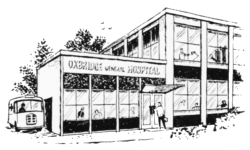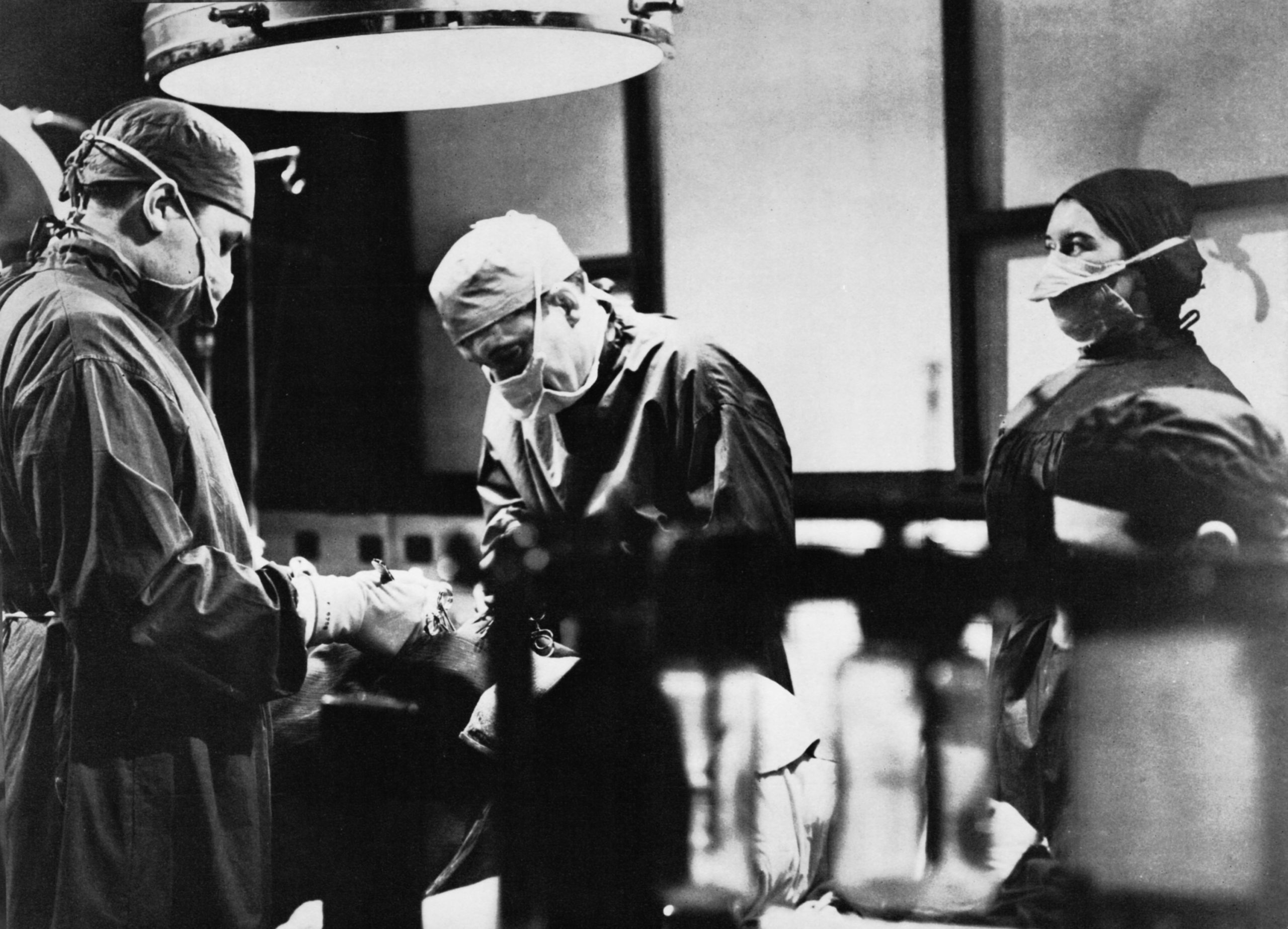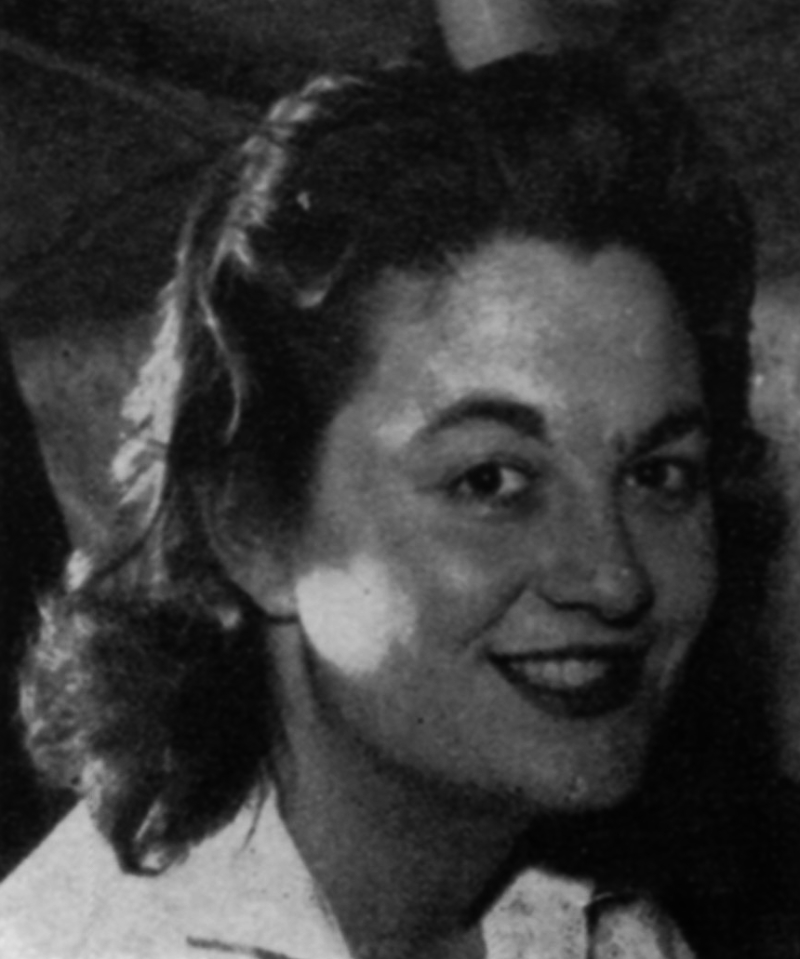Oxbridge Since 1957

On Tuesdays and Fridays since February 1957, the staff and patients of the Oxbridge Hospital have been presented to viewers of Emergency—Ward 10. Few television programmes have been so universally popular Just as hospital life cuts across social and economic barriers, the programme’s audience is drawn from all sections of the population.
From the start, Emergency—Ward 10 became one of the Top Ten most popular programmes and has firmly retained its place ever since. The audience has grown steadily over the years and each episode is now seen by up to 16½ million viewers, one in three of the total population of this country.
Now, on 25th May 1962, Emergency—Ward 10 reaches its 500th episode. This booklet marks the occasion and provides a record of a few of the factors which have contributed to the unprecedented success which the series enjoys.
The idea came from Tessa Diamond (shown below left), then an ATV continuity-writer, who has written many of the scripts. The programme currently has three scriptwriters — Diana Morgan, Rachel Grieve, and Robert Holmes. Producers have been Antony Kearey (from February 1957 until July 1959), Rex Firkin (until October 1960), Hugh Rennie (until May 1961), and John Cooper since May 1961. A number of ATV directors have worked on the programme at various times.
The process of producing an episode of Emergency—Ward 10 starts at the weekly script conference, attended by all the scriptwriters, the producer and his assistant, and a medical adviser. (The picture below right shows a medical adviser, scriptwriter Diana Morgan, production assistant Carol Williams, producer John Cooper, and scriptwriter Rachel Grieve.) All contribute ideas for the episodes which will reach production in about six weeks’ time, and as a result of the interaction of the existing plots, the medical and personal circumstances of staff and patients, the availability of actors and so on, the new story lines are agreed.
The scriptwriters take it in turns to write an episode, where necessary checking with the resident medical adviser or other consultants. Within a week of the script conference the producer and the medical adviser receive first draft scripts for the two episodes. The medical adviser notes any corrections which may be necessary for medical accuracy and suitability, and the producer incorporates these with any revisions he may consider desirable. The revised script is then duplicated and, after the casting has been agreed with ATV’s Casting Department, copies are given to the designer and the director who will be responsible for the particular episodes.
Currently the directors working on Emergency—Ward 10 under producer John Cooper are Vivian Matalon, Geoffrey Stephenson and Dinah Thetford.


